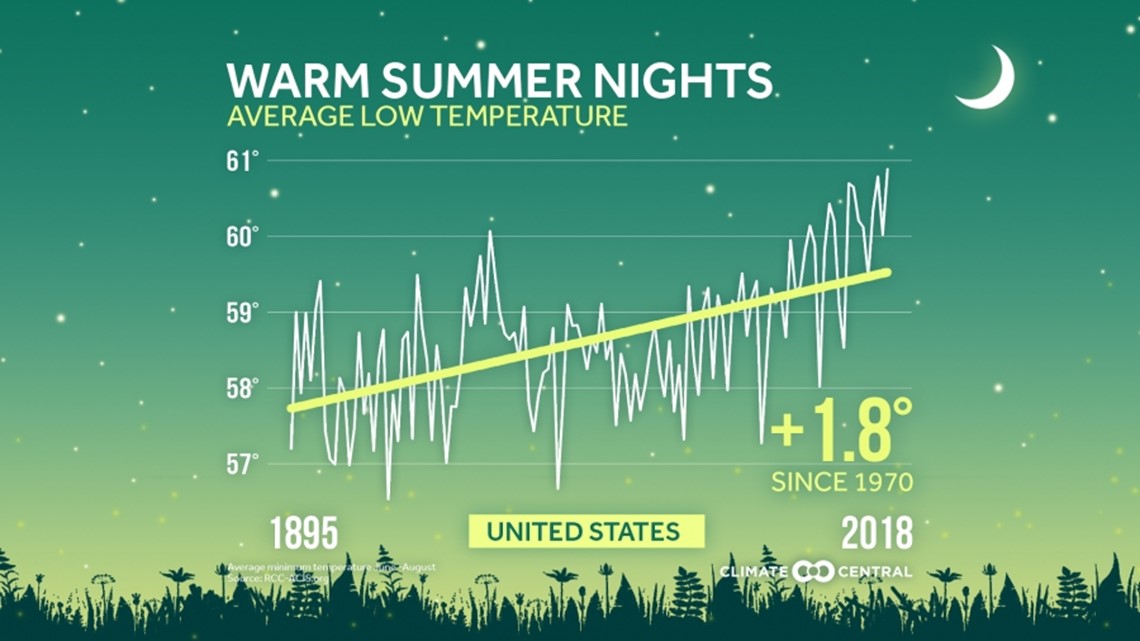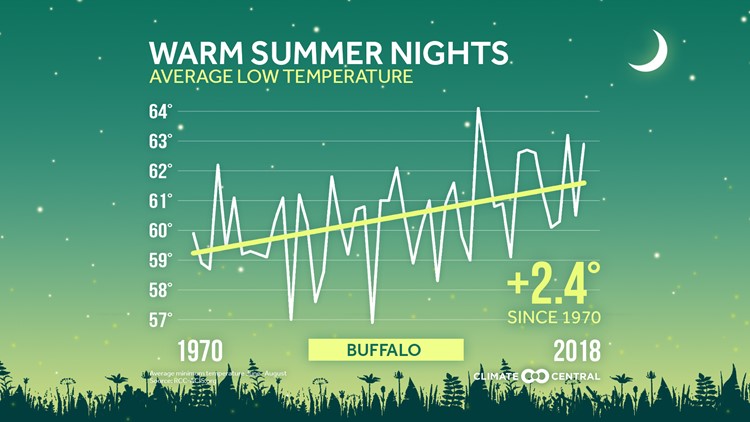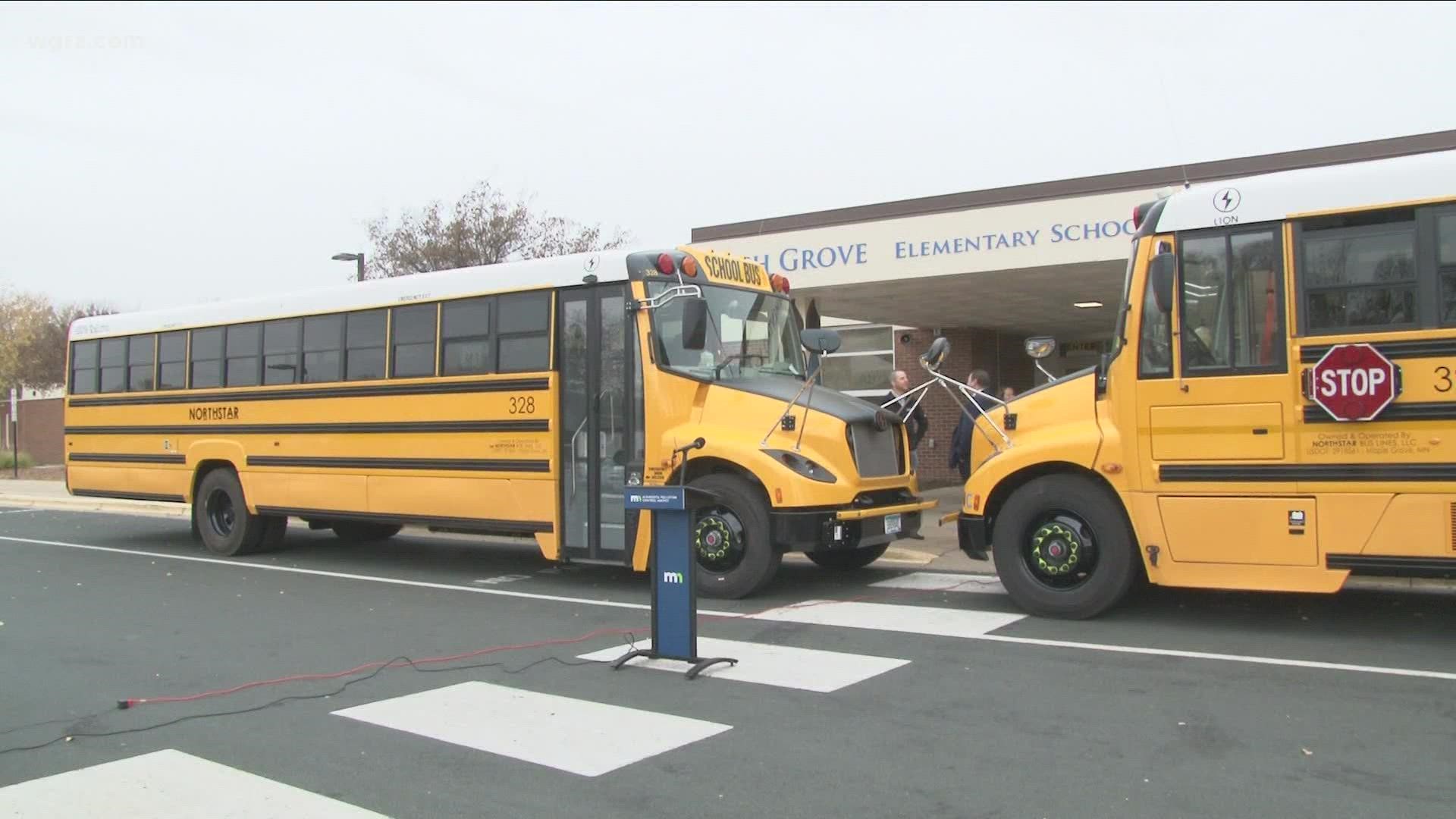Summer 2019 hasn't been excessively warm to this point. Only one day has reached the 90-degree mark. That was back on July 10. The 4th of July was another scorcher too, but no heat wave has lasted more than a couple days.
Related: Hot weather on the Fourth
But we did reach a new record warm low temperature on July 21. The low that morning sat at a balmy 75 degrees with stifling humidity. While that was the only record, warmer-than-normal nights are becoming more frequent in Western New York.
Since June 1, the first day of meteorological summer, 64 percent of nighttime lows stayed above the daily average. That makes summer 2019 yet another warm season that continues the trend of increasing nighttime warmth.
Since 1970, Buffalo's average summer nighttime low has risen from about 59 degrees to nearly 62 degrees. That trend is shown in the graphic at the top of this story.
Buffalo's nighttime lows are warming faster than the national average.


Climatologists can also track warming temperature trends by looking at a city's number of cooling degree days. That's the average of each day's high and low temperature compared to a control temperature of 65 degrees. For example, if Buffalo's daily average temperature is 73 degrees, Buffalo has 8 cooling degree days for that day.
Since 1970, Buffalo average 603 total cooling degree days per year. Over the past 10 years, 7 have had significantly more cooling degree days. That means there have been more hot days and warm nights and people may be relying more heavily on their air conditioning systems to stay comfortable.
No matter how you quantify it, less cooling at night can be detrimental to our health and our wallets. Cooler nights allow our bodies to have a break from the heat. Without the break, health risks are higher for vulnerable populations such as the elderly or those in lower-income communities who may not have access to cooling shelters. For those with air conditioning, it means higher utility bills.
For more background information on climate change, be sure to check out the Climate Minute on WGRZ's social media platforms.



